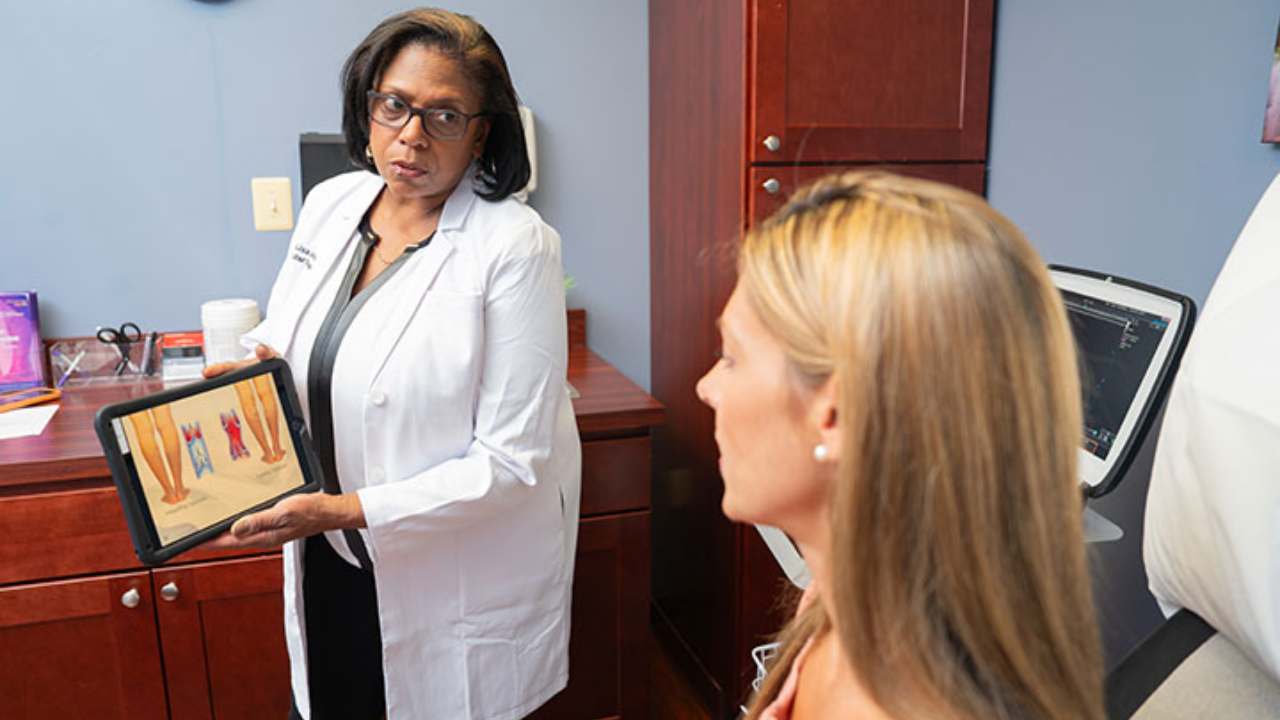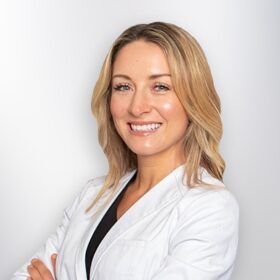If you’ve noticed unsightly bulging veins that seem to twist and turn beneath the surface of your skin, you may be dealing with varicose veins. These veins can cause more than cosmetic concerns; they often come with aching, swelling, and a heavy feeling in your legs. You might also notice a burning or throbbing sensation, and in severe cases, varicose veins can lead to skin changes or even ulcers.
It’s no surprise that many people seek vein treatment to alleviate these symptoms. However, the idea of varicose vein treatment can feel intimidating, especially when pain is a significant concern.
At Vein Treatment Clinic, we understand that pain is a major barrier to considering varicose vein treatment. That’s why we specialize in minimally invasive, virtually painless vein treatments to help you eliminate those varicose veins without needing painful surgeries. Whether you’re just starting to notice symptoms or have been living with them for years, we offer a range of vein treatments that help you get back to feeling comfortable. Contact us to schedule a consultation and discuss which varicose vein treatment suits you.
Endovenous Laser Ablation (EVLA)
Endovenous laser ablation (EVLA) is a minimally invasive procedure that uses laser energy to treat varicose veins. A small catheter is inserted into the vein, and the laser heats the vein walls, causing them to collapse and seal shut. As the vein heals, blood flow is rerouted to healthier veins, and the body gradually absorbs the treated vein. With EVLA, most patients report only minor discomfort during the procedure, often described as a slight burning sensation.
Pros of Endovenous Laser Ablation:
- Non-invasive with minimal downtime
- Immediate relief from symptoms
- No general anesthesia is required
- Quick procedure, often completed in under an hour
Cons of Endovenous Laser Ablation:
- Some patients may experience mild bruising
- There is a small risk of vein damage if not done correctly
- Mild discomfort during the procedure
- Results may take a few weeks to fully show
Sclerotherapy
Sclerotherapy is one of the most common treatments for varicose veins. It involves injecting a solution directly into the problematic vein, which causes it to scar and close off. The vein then fades over time as blood is naturally redirected to healthier veins. This procedure can treat large and small veins and is performed in the office without anesthesia. Sclerotherapy is typically performed in a series of short sessions, with most patients experiencing only minor discomfort from the injections.
Pros of Sclerotherapy:
- Quick, outpatient procedure with minimal recovery time
- Very effective for small to medium-sized veins
- No scarring or incision marks
- Generally well-tolerated by most patients
Cons of Sclerotherapy:
- It may require multiple sessions for optimal results
- Some patients experience mild pain or cramping during injections
- Treated veins may take weeks to fully fade
- Not ideal for very large veins
VenaSeal (Medical Super Glue)
VenaSeal is a treatment for varicose veins that uses a medical adhesive to seal the problematic veins shut. During the procedure, a catheter is inserted into the vein, and the adhesive is delivered into the vein. The vein then seals itself off, redirecting blood flow to healthier veins. Over time, the treated vein is naturally absorbed by the body. VenaSeal is virtually painless. Using a medical adhesive eliminates the need for heat or cutting, making it an excellent option for those concerned about pain.
Pros of VenaSeal:
- No need for heat or tumescent anesthesia
- Quick procedure with little to no downtime
- Minimal discomfort during and after the procedure
- Immediate results in many cases
Cons of VenaSeal:
- Not suitable for all types of veins
- Some patients may experience mild bruising
- Requires careful monitoring for allergic reactions
- The cost may be higher than other vein treatments
ClariVein
ClariVein is a catheter-based treatment for varicose veins that combines mechanical and chemical techniques. It uses a rotating catheter to gently damage the vein wall, which is then treated with a sclerosing solution to seal the vein shut. This treatment is effective for various varicose veins, including larger veins that might not respond well to other treatments. Patients undergoing ClariVein report a relatively painless experience. The catheter is inserted through a small incision, which involves little to no discomfort.
Pros of ClariVein:
- Minimal discomfort during and after treatment
- Effective for larger veins
- No need for heat or cutting
- Short procedure with quick recovery time
Cons of ClariVein:
- Requires multiple sessions for best results
- Some patients may experience mild bruising or soreness
- Treated veins may take several weeks to fade
- Not always suitable for all vein types
Radiofrequency Ablation (RFA)
Radiofrequency ablation (RFA) is similar to EVLA but uses radiofrequency energy instead of laser energy. A catheter is inserted into the vein, and the radiofrequency energy is applied to the vein wall. This causes the vein to collapse and seal shut, redirecting blood flow to healthier veins. The procedure is minimally invasive and typically done under local anesthesia. RFA is another excellent option for treating varicose veins, especially for larger veins. It’s a quick, minimally invasive procedure that offers effective results with minimal pain.
Pros of Radiofrequency Ablation:
- Outpatient procedure with minimal recovery
- Effective for larger veins
- No incisions or stitches
- Immediate relief from symptoms
Cons of Radiofrequency Ablation:
- Some patients may experience mild discomfort or bruising
- Results may take a few weeks to fully appear
- Multiple sessions may be needed for larger veins
- Mild swelling or tenderness in the treatment area
Dealing with varicose veins can be frustrating, but there’s no need to let pain hold you back from seeking vein treatment. At Vein Treatment Clinic, our board-certified vein doctors offer various minimally invasive vein treatments to provide lasting relief without the discomfort you might expect from surgeries. Learn about our vein treatments to discover which one is best for you. We have vein clinics in New York, Long Island, California, Maryland, and New Jersey, so find the one closest to you and visit your nearest vein treatment clinic today.









